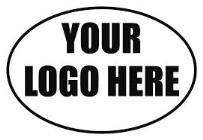Different assets create different outcomes
A will is the first step in your estate plan, but it’s not everything. For example, depending on how your assets are held, will depend on how easily and to whom they will be distributed after you’ve gone.
The executor of your estate is appointed in your will and becomes the manager of your assets. The executor’s job is to identify all your assets, pay your debts and pass assets to your beneficiaries.

As the list below shows, your estate consists of all the assets you own and control. For many people, their estate may be small – not because they have no wealth but because it is held in a structure that does not allow the asset to be controlled or owned outright.
-
Assets you own and control which are distributed by your will.
For example: Estate assets, assets held as tenants in common. -
Assets where you share ownership which pass to the other owners.
For example: Assets held as joint tenants. -
Assets you control but don’t own which requires a separate strategy.
For example: Superannuation, Trusts, Companies
There are four types of assets that can be forgotten and these can make up most of your wealth. Not considering these assets in your will can mean your wealth passes to the incorrect person or your beneficiaries pay more tax than they need to.
Jointly owned assets
Many couples own the family home as ‘joint tenants’. This means if you die, ownership automatically passes to your spouse. Arranging to own other assets such as bank accounts, cars and investments in joint tenancy can make life easier for those you leave behind.
An alternative is to own the assets as ‘tenants in common’. When you die, your share of the asset is distributed according to your will. Careful consideration is required when deciding whether an asset should be owned in joint tenancy or as tenants in common because both ownership types have advantages and potential disadvantages.
Superannuation
In most cases, superannuation will become many people’s largest asset. On your death, the trustees of the super fund are responsible for paying out your super to your dependants. Super is not automatically part of your estate and requires separate strategy decisions.
Depending on your fund, you may be able to direct the trustees to pay your super to specific people or to your estate when you die.
Trusts
The assets in a trust are held by the trustees on behalf of the beneficiaries. As a trustee, you may have control of the assets when you are alive. When you die, new trustees must be appointed according to the rules in the trust deed. The trust assets do not form part of your estate and separate strategy decisions are required.
Companies
The assets in a company are owned by the shareholders. As a director, you may have control of the assets when you are alive. When you die, new directors will be appointed according to the company rules. The company assets do not form part of your estate and separate strategy decisions are required.
Please contact us on 02 4342 1888 if we can be of further assistance .
Any information provided by the author detailed above is separate and external to our business and our Licensee. Neither our business, nor our Licensee take any responsibility for any action or any service provided by the author.
Any links have been provided with permission for information purposes only and will take you to external websites, which are not connected to our company in any way. Note: Our company does not endorse and is not responsible for the accuracy of the contents/information contained within the linked site(s) accessible from this page.


